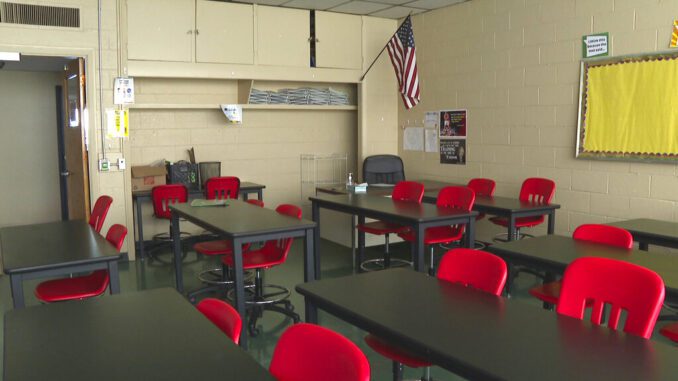
At what point is an experiment considered a success?
To determine success, the scientific method is the standard used to validate results, beginning with identifying the problem and forming a hypothesis to developing an experiment, collecting and analyzing results and then establishing a conclusion. The question of success is at the heart of the public charter schools’ experiment.
Since May 8-14 is National Charter Schools Week, this is the perfect time to evaluate our successes.
As a part of the national education reform movement, charter schools have a well-established history of providing teachers the opportunity to explore new instructional methods. In North Carolina, bi-partisan support in the General Assembly established the Charter School Act in 1996, which authorized “a system of charter schools to provide opportunities for teachers, parents, pupils, and community members to establish and maintain schools that operate independently of existing schools,” essentially increasing parental choice and learning opportunities for students. No longer restricted to schools assigned by zip code, parents who might not be able to afford a private school option are now able to choose the school that best meets the needs of their children. With over 200 public charter schools in our state, those educational models include STEM/STEAM; core knowledge; arts-based; agriculture and nature-based; hands-on, project-based learning, and more.
What are the results of this experiment? Unfortunately, negative stories seem to be the ones that make the news. Charter school operators agree that the closure of schools like Torchlight Academy, Bridges Academy, and Three Rivers Academy reflect poorly on charter schools as a whole. When schools fail students and damage the public trust, the consequences can have long term effects. However, there it is worth noting that accountability did its job.
Unlike district schools, charter schools function with the understanding that poor management can result in closure. There are extensive safeguards in place that hold these schools to more higher standards than traditional public schools. First, new schools must undergo a year of training known as Ready to Open. This is an intense process that involves creating policies, attending meetings, submitting reports, and more, all tracked by the Office of Charter Schools. Schools that do not fulfill their duties are ultimately denied the ability to open. Established schools submit data for the annual Performance Framework report to the Office of Charter Schools. The Performance Framework evaluates each charter school on 46 operational, academic, and financial indicators. In 2020-21, 96% of charter schools met or exceeded operational and financial goals. Legislation suspended academic measures due to the pandemic.
What does the data tell us? Charter schools are working hard to serve their families. The 2021 Annual Charter Schools Report shows that charter schools enrolled 119,000 students in 2019. Despite decreasing enrollment in district schools, North Carolina’s public charter schools have increased enrollment over 9% with more than 130,000 students attending public charter schools in 2021. Further, 73% of charter schools report waiting lists with a total of over 60,000 names. Clearly, parents are seeing the benefits to school choice. And they’re not alone. EdChoice’s Public Opinion Tracker shows that 66% of adults support charter schools too.
With 26 years of public charter schools in North Carolina and growing support from parents and the public, the results are obvious. The public charter schools’ experiment has proven to be a success. Of course, opponents will continue to point to a charter school closure as a failure of the experiment, but every good scientist knows that there is more to be learned from a failure than a success. To put it into perspective, a reporter once asked Thomas Edison how it made him feel to have 1,000 failures before he invented the lightbulb. Edison replied, “I didn’t fail 1,000 times. The lightbulb was an invention with 1,000 steps.”
The life of a student is more promising and hopeful than a lightbulb. Shouldn’t we try to build on these successes for their sake? Happy National Charter Schools Week!
Rhonda Dillingham is the executive director of the NC Association for Public Charter Schools.


